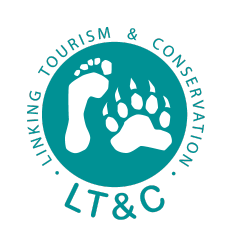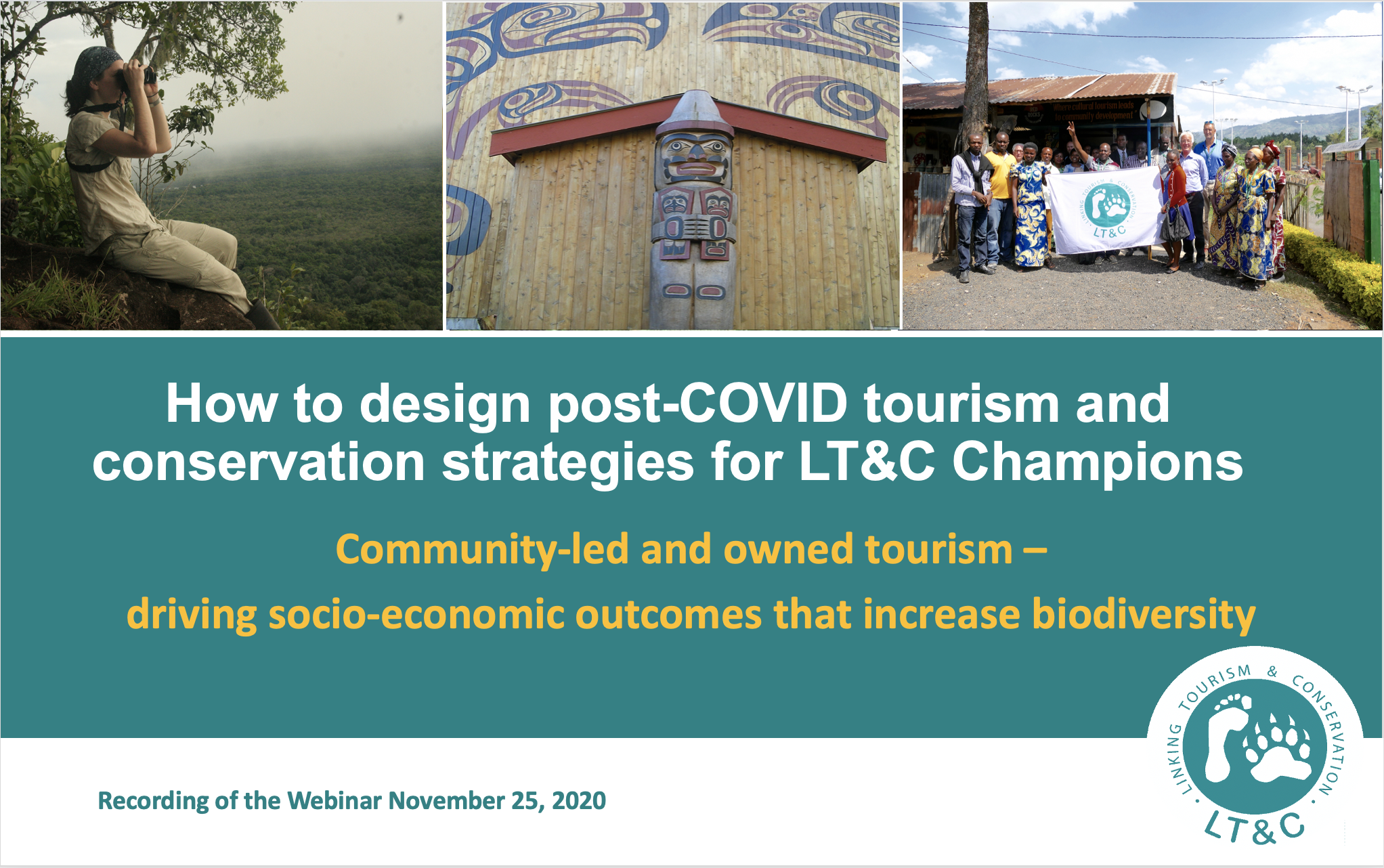November 25, 2020, 17:00-18:30 CET LT&C has run the first session of this webinar series on the topic:
Community-led and owned tourism – driving socio-economic outcomes that increase biodiversity
The webinar was recorded (see the video), and you can find the different presentations below in the agenda.
Nature-based tourism (see the World Bank’s “Tools and Resources”) or eco-tourism is a “contract” started in 1985, whereas tourists make parks worth their maintenance and those communities servicing the tourists keep poachers and loggers at bay; this kind of tourism pays for well-managed parks and funds rangers, and protection and veterinary programs; it is a source of revenue for rural communities that, due to this revenue, can stay off more damaging uses of the ecosystem. According to WTTC, wildlife tourism generated US $120 billion/year, 3 million jobs, particularly in natural destinations such as in Africa (1/3 of tourism), Latin America (1/10) and Asia-Pacific (1/17). The COVID shock has essentially crashed this market to the ground for the last half year. WHAT NOW for those champions?
Travel will continue, but mainstream tourism depended on (questionable) subsidies and incentives (low-cost airlines, 2,500 room hotels with 2-3 day stays, multilateral loans) may not survive in the post-COVID environment. Sustainable tourism (defined by its support to the Sustainable Development Goals, SDGs) will need now to come into the forefront and to adjust to new times. Post-COVID trends: domestic tourism increases; more extended stays for international visitors; smaller-scale “niche” products and services. Past trends will need to intensity: innovative co-management options such as concessions, licenses, public-private partnerships, and citizen science done by tour guides, park rangers, accommodation managers and tourists, as already done in Canada and South Africa, among other destinations.
Opportunities for international cooperation on this topic will come up at the 15th Conference of the Parties of the Convention on Biological Diversity in Kunming, Yunnan Province, May 2021, and associated parallel events. This webinar series will coordinate the lessons learned and the role of small- and medium-sized entrepreneurs such as those in the Linking Tourism & Conservation Network. The basic question is “How can we keep those doing best for nature from closing”? Outcomes of this consultation would then be taken to the Business Forum parallel to the 15th Conference of the Parties of the CBD in Kunming in 2021.
AGENDA
| Time | Speaker, title of presentation |
| 17:00-17:05 | Oliver Hillel, Secretariat of the UN Convention on Biological Diversity (Montreal, Canada) Introduction to the webinar series |
| 17:05-17:10 | Peter Prokosch, Founder and CEO, Linking Tourism & Conservation (LT&C) (Arendal, Norway) Introduction to LT&C |
| 17:10-17:20 | Gabriel Minas, Director Marketing & Alliances Napo Wildife Center (Yasuni National Park, Ecuador) Protecting the Añangu Dream |
| 17:20-17:30 | Dallas Smith, President and Chairman of the Board with the Nanwakolas Council Society, the Nanwakolas Business Council and Knight Inlet Lodge, the grizzly bear viewing operation (Canada) Community-based tourism in the Great Bear Rainforest |
| 17:30-17:40 | Sophia Wood, „Friends of Wallacea“ and „Operation Wallacea“ (Staunton, USA) The concept of Wallacea Operations and Friends of Wallacea |
| 17:40-17:50 | Annarie Seecharan , Senior Manager of Destination Marketing Guyana Tourism Authority (Guyana) Safe Guyana’s Wildlife |
| 17:50-18:00 | Greg Bakunzi, Amahoro Tours and Red Rocks (Rwanda) New strategies to link international- with local- and regional tourism activities to the benefit of national parks local communities |
| 18:00-18:30 | Discussions and resuming |
Write to us, if you want to get in contact with us or learn about the planning of future webinars
Contact us
„*“ zeigt erforderliche Felder an



